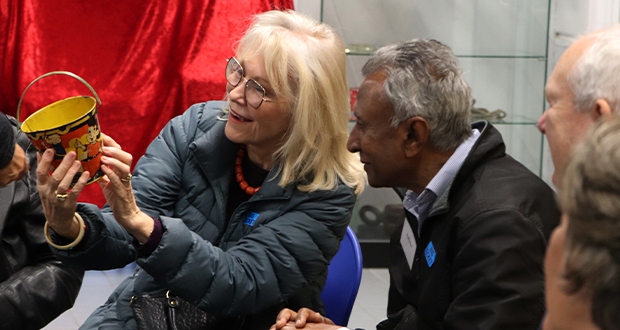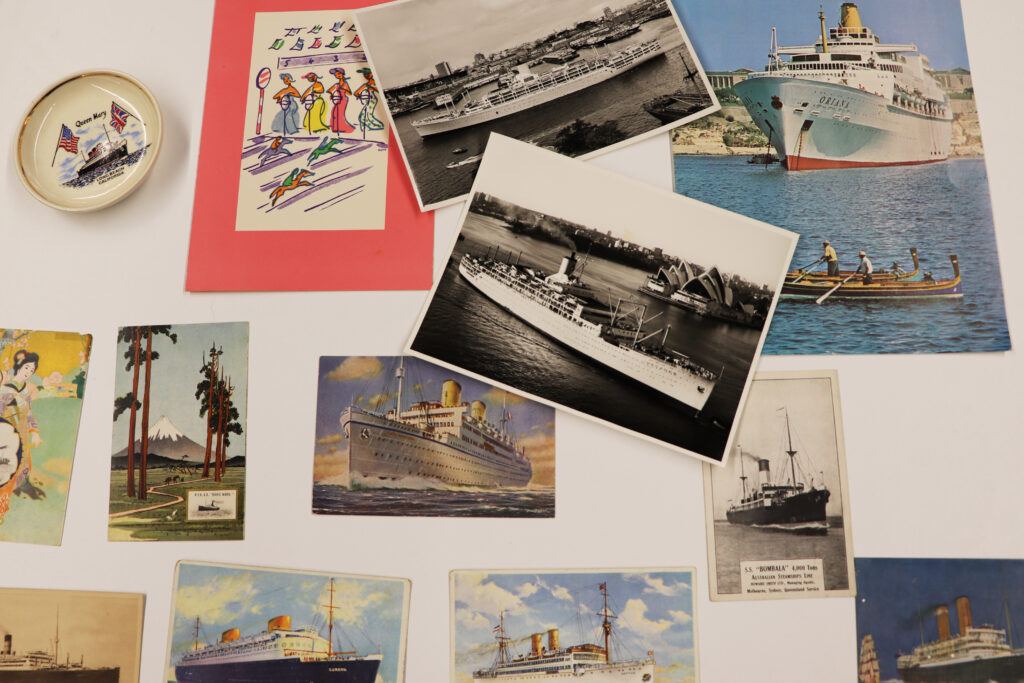The Australian National Maritime Museum, in Sydney, is running a storytelling program for people with dementia and their carers to foster connections.
Seaside Stories: Dementia and Reminiscence is a themed, hands-on story-sharing program where participants can touch and hold museum objects while sharing their stories and experiences in a safe space.
Anna Gregory, the lifelong learning officer at the Maritime Museum, said participants enjoyed their time because they felt valued and respected for the duration of the program.
“There are three components to the program – a themed reminiscence and story-sharing sessions, morning tea, and a museum tour,” Ms Gregory told Aged Care Insite.
“The facilitators have been trained in dementia communication, and sessions are tailored for the sensory and mobility preferences of the participants.”
“Seaside Stories encouraged story-sharing, social interaction, and connection.”
Seventy per cent of aged-care residents live with moderate to severe cognitive impairments, including dementia.
More than 400,000 Australians live with dementia. That number is expected to jump to 900,000 in the next 25 years, with the recent Intergenerational Report estimating the nation’s older population to triple.
Research has shown the quality of life and well-being of people with dementia significantly improved when exposed to narrative design.
Alzheimer’s Australia reported that 57 per cent of people with dementia experienced high levels of loneliness, and one in two carers reported high levels of loneliness.
Ms Gregory said Seaside Stories provided structured and informal opportunities for people to interact and connect.
“During the reminiscence sessions, museum educators ask questions, guide discussions, and encourage participants to share their stories and recollections, which builds a sense of community, connection, and trust between participants,” Ms Gregory said.
“Morning tea is relaxed and convivial, where people with dementia can chat and soak the views of Sydney Harbour, and the carers have the opportunity to talk about the challenging yet rewarding experience of caring for someone with dementia.”
“It’s heart-warming to see friendships developing and support networks strengthening over a cup of tea and cake.”
Participants have raved about the program, with comments applauding the museum’s initiative in fostering stories and connections between people with dementia and carers.
One of the program’s educators, Sue Grunstein, said their roles felt very rewarding and affirming.
“The objects are just the starting point of stimulating memories and discussions,” she said.
“When facilitating, I’ve seen stories and recollections emerge that may not been aired before.”
Ms Grunstein said she realised how important the program was not only to people with dementia but to carers as well.
“I had a session where the person with dementia had very limited verbal expressions, but his wife recalled that he had been a champion swimmer in Hungary.”
“Even if a person is not able to verbalise their experience, having someone with them who can share that memory is very meaningful.”
Seaside Stories is only offered as an onsite program at the Maritime Museum in Sydney.
However, with the success and stellar feedback from everyone involved, the museum plans to travel the program and run the sessions across NSW and Australia.
Do you have an idea for a story?Email [email protected]
 Aged Care Insite Australia's number one aged care news source
Aged Care Insite Australia's number one aged care news source


